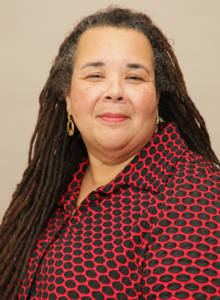
Up-Tick of Non-sequitur Speech
The shift in the pattern is subtle, and I might be hypersensitive given the national spectacle of alternative facts and fake news, but I think conversations riddled with non-sequitur speech are on the Lynn Westfieldrise. Here is an example:
Recently, as a consultant for a weekend gig, I was checking into a hotel in Chicago. The desk clerk, a young woman, asked me for identification and my credit card. Reaching into my purse, I handed her my documents. When I noticed that she was swiping my credit card, I told her that my incidental expenses were being covered by a third party, and she need not swipe my credit card. She said she had to swipe everybody’s card. Again, I informed her that my incidental expenses were being covered by a third party and that their card was on file for all my expenses. The manager, overhearing our conversation, came to the desk. He told the clerk that I was correct and that my card need not be swiped. Two days later at checkout, mindful that my card had been swiped, I wanted to be sure no costs had been charged to my card. I handed the young woman at the hotel desk (different woman than at check-in) my room keys and asked to which card the expenses were charged. She told me, without looking at the paperwork, that the charges would go to the card I gave at check-in. I told her my expenses were being paid by a third party and asked which card was being charged. She looked irritated and called for the manager to help her (or me). When the manager appeared at the desk (same manager from check-in), I asked to which credit card the expenses were being charged. He replied that the charges were going to the card given by my client, but he did not tell me the number on the paperwork. I reminded him that my personal credit card had been swiped at check-in. Shaking his head no, he said that my card had not been swiped. I frowned at him. The manager responded begrudgingly, “Yes, but she made a mistake.” His response was confusing to me. His statement inferred that if a mistake had been made and subsequently rectified, then no mistake was ever made. Therefore, I should not be questioning the process. I asked again, “To which credit card will my expenses be charged?” Finally, looking at the paperwork, he read aloud the number on the bill, and indeed, it was the card of the client. I thanked them both. As I walked out of the hotel, I made a mental note to check my monthly credit card bill because it is likely my card will be charged.
The feeling of suspicion and fuzziness I felt while walking out of the hotel is similar to how I feel while watching TV political interviews. Non-sequitur speech is seeping into public discourse at an alarming rate. Political pundits on news shows routinely, regardless of the posed question, give a scripted reply that ignores the question at-hand but instead polishes the political brand or repeats a generic political message. The confusing response to the question is often such a non-sequitur that the interviewer, even when poker-faced, looks confused and gropes for ways to bring some semblance of cohesion to the TV viewer. Regrettably, my hunch is that this strange and strained conversation pattern (which is not dialogue) is creeping into the classroom. It is as problematic in classrooms as it is in politics.
The up-tick of non-sequitur speech by my students in the classroom is troubling. I do not want the deliberations in my classrooms to devolve into pseudo-conversations that have little to do with reality or where bold-faced lies are touted as truth. I do not want my students to mimic the patterns of communication from politics believing that specious comments make for genuine dialogue. If teachers are not vigilant in our classrooms to create space for healthy, open dialogue and the free exchange of ideas, then conversation patterns of alternative facts and non-sequitur speech will quickly seize our classroom discourse, rendering us a less able, more oppressed people.
It seems, given the state of authoritarian governmental leadership and the shrinking respect for a voiced constituency, that it is imperative that practices of dialogue are reinforced and extensively utilized in our courses. We who teach must provide antidotes for the poisons of alternative facts and mean-spirited clamor that masquerades as dialogue. The truth, as well as the ability to speak it, in empirical facts or in the nuances of multi-faceted poetry, is to be guarded and nourished in our classrooms. Teaching students the power of dialogue, at this moment, is an act of resistance that will reach far beyond the classroom. Nurturing moral imagination, honing skills of courage and thoughtful activism, analyzing and reinforcing our bedrock values of equity, justice, and human dignity are pedagogical imperatives for all topics and all classrooms. Our classroom spaces must become cauldrons of resistance by the dialogues we share. As I plan my fall courses, I will increase the time for student dialogue in learning activities and assignments. I will intentionally discourage non-sequitur speech and encourage their critical wisdom. For the sake of our constitutional values we must equip our students with dialogue as a tool of resistance.
Leave a Reply